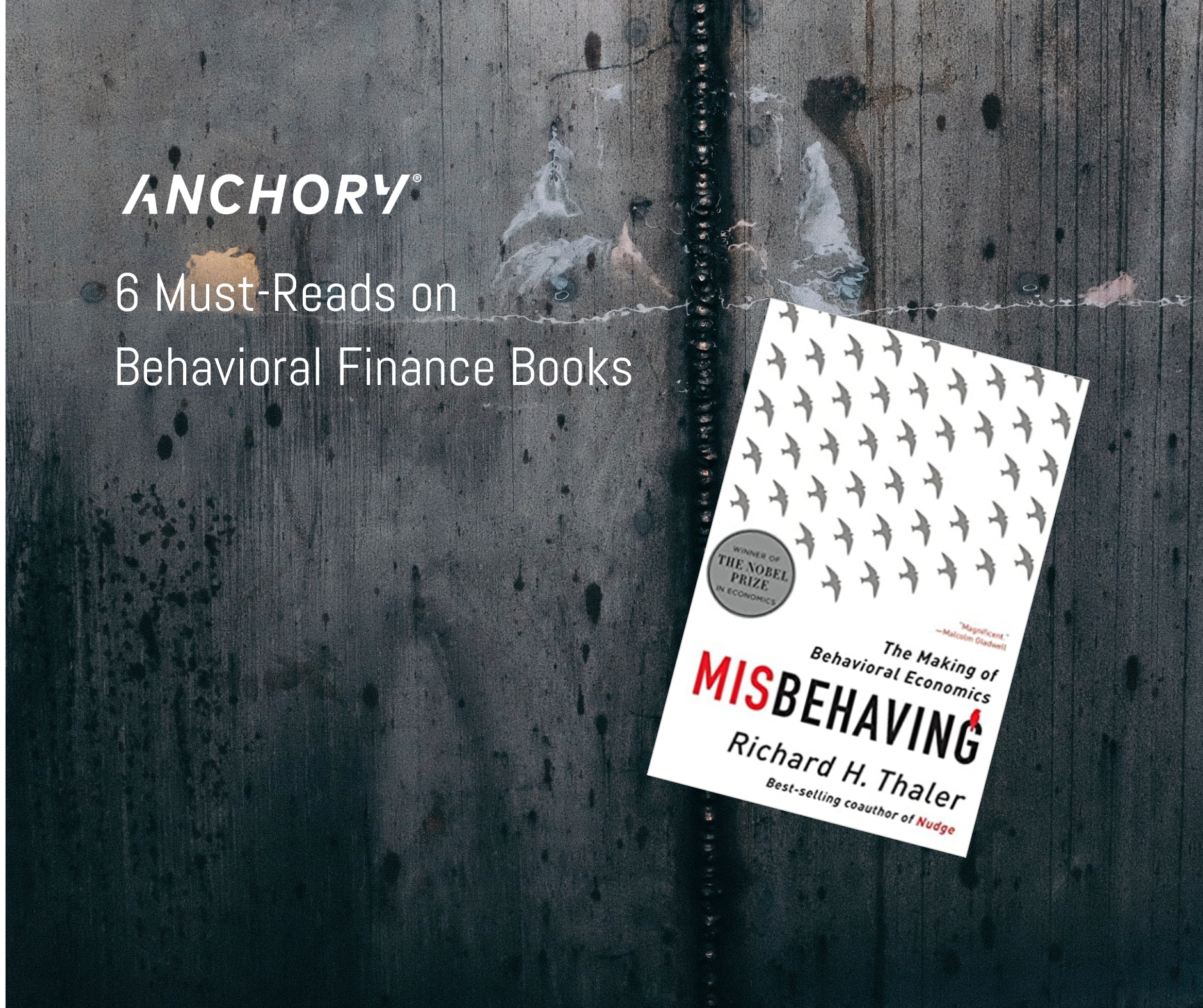Are You a Financial Procrastinator? 5 Ways to Overcome it
Procrastination is a real thing that can trickle into other areas of your life. Financial procrastination is one of those areas.
9 min read
.jpg) Niels Buksik
:
Jan 21, 2023 12:38:22 AM
Niels Buksik
:
Jan 21, 2023 12:38:22 AM
%20(1).png)
I'm often asked whether people should hire a financial advisor or go the do-it-yourself route. And while there's no easy answer, in this blog post, I'm going to break down some of the key considerations to help you make the best decision for you.
Financial advisors are professionals who help people manage their finances. They take a holistic approach to financial planning, looking at all aspects of your financial life and evaluating how you can best reach your goals. Financial advisors typically offer advice on investments, retirement planning, tax strategies, estate planning and more.
At the center of any good financial plan is the understanding that everyone’s situation is unique - no two people have the same wants and needs when it comes to money. Financial planners use their expertise to provide tailored advice to their clients. This requires an understanding of many different areas: investments, current market trends, taxes, insurance and estate planning. Financial planners also look at other factors like cash flow management and retirement income solutions.
For those just starting out or who don’t have much experience investing, a financial planner can be especially valuable. Financial advisors are knowledgeable in all facets of personal finance - they know what questions to ask and what risks need to be taken into consideration. Having someone there to talk through your options with you can be immensely helpful in gaining clarity on your overall financial picture and how to move forward with confidence.
Financial advisors and financial planners can be very similar in their services, but there are some differences that are important to understand. Financial advisors typically focus on helping clients grow their long-term investments, while financial planners take a more holistic approach when helping clients manage their finances. Financial advisors look at investments such as stocks and bonds, and provide advice on buying and selling them. Financial planners offer advice about budgeting, taxes, retirement planning, estate planning, insurance needs, education funding and more; they often also offer hands-on help with setting up retirement accounts or other investments. Financial advisors usually work independently from lenders or brokers and may have affiliations with specific firms or products. Financial planners often have the option of working for themselves or with a firm that provides services for a fee.
When deciding which route to go down when making financial choices, it is important to consider what type of assistance you need to reach your goals. Financial advisors may be best suited for those who need investment advice and ongoing portfolio management services. Financial planners are better suited for those who want to create an overall strategy for long-term success by creating a plan that can be monitored over time.
In short, it is important to evaluate your individual needs before choosing whether to work with a financial advisor or planner. While some people may benefit from the expertise of both roles, knowing what you want out of your financial journey is critical in order to make an informed decision. Carefully weigh the pros and cons of working with each professional in order to determine which type of expert will give you the best chance at achieving your goals.
Working with a Financial Planner can be an invaluable asset for anyone looking to increase their financial freedom. Financial Planners can provide impartial advice and guidance on any area of personal finance, from retirement planning to budgeting and investments. They are able to assess your current financial situation and help you determine the best path forward for achieving your goals. Financial Planners take a holistic approach to financial planning, considering all aspects of your finances and helping you develop a strategy that meets your needs. They will often have access to higher-level investment tools, such as tax-advantaged accounts or sophisticated estate planning strategies, that may not be available if you were investing on your own. Financial Planners can also provide you with the discipline and accountability needed to stay on track with your plan over time. Financial Planners come in all shapes and sizes – some work for large firms while others are independent advisors who offer their services online or through smaller offices. It’s important to do your research when looking into working with a Financial Planner, as they can be costly investments depending on the services they offer. Taking the time to evaluate each Financial Planner’s qualifications, experience and fees is essential in finding someone that fits within your budget and provides the best possible advice. Knowing what type of Financial Planner is right for you will go a long way towards helping you achieve financial success in the years ahead!
When it comes to managing your finances, there is no one-size-fits-all solution. You can either take a DIY approach and do the work yourself, or you can hire a financial advisor to help you get on the right track. The decision is ultimately yours but it's important that you weigh the pros and cons before making a final decision. If you have little experience with handling investments or budgeting, going with a financial advisor may be a wise choice - they can provide advice tailored to your individual circumstances and make sure your hard earned money is in good hands. On the other hand, if you're confident in your own knowledge and skills, taking control of your finances can be incredibly rewarding - plus it'll cost you fewer future dollars in expenses! Whatever route you choose is up to you – just make sure that it's the right fit for your needs.
Figuring out whether or not you need the help of a financial advisor can be complicated, but when you’re stuck deciding between DIY or seeking expert assistance there are a few key factors that can help guide your decision. It’s important to consider the amount of time and energy you have to dedicate to managing your finances, as well as what sort of financial situation you’re dealing with now and how much planning for the future it requires. It may also be beneficial to ask yourself if this is an area where you feel confident in your knowledge or if it’s something that might intimidate you. Joe Rogan once said “it's always worth asking for advice, because even if you end up ignoring it, at least the person has given it. And if they really know their stuff, they have something valuable to offer” - and this is especially true in matters concerning finance and money management. So remember: no matter which route your choose - DIY or seeking help from a professional advisor - do your research first so that you can make an informed decision.
Let me ask you this - do you have the time and energy to manage your finances on your own? It's a good idea to assess whether it would be best for you to seek out the help of a financial advisor. After all, they can take a deep dive into the details of your finances to ensure that all of your bases are covered. They often come with years of experience in money management, who can create priceless strategies tailored specifically to your needs. And while do-it-yourself budgeting can certainly work, with a financial professional on hand helping you make smart decisions, you can give yourself an additional level of protection in every aspect.
Are you comfortable making investment decisions on your own? It's definitely a question to think about, because if you want to invest but don't want to spend a fortune on advice, the DIY route is an option. However, it’s important to consider if you have the knowledge and experience necessary for financial decision-making. If the answer is yes, then going solo may be the better choice for you. On the other hand, if there's any doubt in your mind at all, finding a qualified financial advisor may be the smarter move. Whichever way you're leaning, make sure to have enough information before jumping into anything too complex with your hard-earned money.
It's hard to keep up with all the changes in today's financial market, and it can be very difficult to know which path to take when it comes to your own personal finances. Having a clear understanding of what you're trying to achieve financially is the first step. Whether that means finding a financial advisor to help guide you through the process, or taking out the time to do your own research and learn how you can reach your financial goals with a "DIY" approach, making sure that your goals are structured correctly and attainable is key. Taking these steps before navigating the world of finance will save you a lot of headaches down the line.
It's no secret that when it comes to spending and saving money, discipline is key. Having a budget should be your number one priority in order to make sure you're sticking to your financial goals. If you think you can be disciplined enough to keep this up on your own, then fantastic - but if not, don't worry because there are plenty of financial advisors out there who can help ensure that you stay on the right path. A good advisor can save you time, energy, and at the same time give you the insight you need in order to make smart economic decisions going forward. So if being financially disciplined just isn't something that comes easily or naturaly, don't hesitate to get some help!
Employees Benefits Research Institute suggest one third of working adults consult with an advisor currently whilst nearly half are considering doing so too.
Financial advisors can provide a valuable deep dive into one's finances, offering advice and strategies tailored to their individual needs. But for those who are confident in making investment decisions on their own or have the time and knowledge necessary for financial decision-making, going solo may be best. Before navigating the world of finance it is important to understand what goals you want to achieve as well as having an adequate budget with disciplined spending habits; however if this isn't something that comes naturally then don't hesitate from seeking help from Financial Advisors. Common triggers such increasing complexity, lack of expertise or disagreement within households often lead individuals towards hiring Financial Advisors but other life events like marriage/divorce also prompt people further down this route too.
Life events that change your financial picture or outlook include:
Note that financial advisors can provide one-time consultations, as well as ongoing guidance. After a major life change, you may only need a short-term engagement. Typically, the outcome would be a financial plan you could implement yourself.
For example, say you just became eligible to contribute to your 401(k). You could choose a Registered investment advisors, investment advisor representatives and certified financial planners all carry fiduciary-level responsibility. You can easily spot these titles on business cards, websites and email signatures. Chartered retirement planning counselor and accredited investment fiduciary are other designations that indicate a fiduciary responsibility. they could recommend initial investment choices appropriate for your age, risk tolerance, and goals. Then it would be your job to activate those investment selections and monitor your performance.
Financial advisors can provide invaluable guidance when it comes to navigating complex finances and major life events, such as marriage or divorce. Financial professionals carry fiduciary-level responsibility and offer services ranging from one-time consultations to ongoing advice tailored for individual needs. Evaluating financial goals in combination with a budgeting strategy is essential before making the decision of whether or not working with an advisor would be best.
Nearly three-quarters of married or cohabitating adults admit to financial tension in their relationship. That's according to a recent survey by the American Institute of CPAs.
Money conflicts may prevent you and your partner from moving forward on a wealth plan. You might retain a financial planner to smooth over those conflicts with objective, expert advice.
When couples live together, they might not agree on the best way to manage their finances. This can cause tension in the relationship and make it hard for them to make a plan. Financial advisors are experts in money and can give advice that helps couples decide what is best for them. They have special titles like Registered Investment Advisor, Investment Advisor Representative, Certified Financial Planner, Chartered Retirement Planning Counselor, and Accredited Investment Fiduciary that tell you they are responsible for helping with your finances.
The cost of hiring a financial advisor varies greatly depending on the services you need and the type of advisor you choose. Financial advisors generally charge an hourly rate, a flat fee, or an annual fee based on a percentage of your assets. Financial advisors often offer free consultations to help you decide if working with them is right for you.
Before meeting with a financial advisor, it is important to have an idea of what services you need and how much money you are willing to spend. Financial advisors typically charge by the hour or by project, but may also charge a fixed fee or commission. Hourly fees range from $100-$400, while flat fees start around $500 and can go up to several thousand dollars depending on the complexity of the project at hand. Financial advisors who work on a retainer basis often charge 1-2% of your total assets under management (AUM).
When deciding how much money to allocate towards hiring a financial advisor, it is important to consider how much their expertise will help you achieve your financial goals. Financial advisors can be invaluable when it comes to providing guidance and direction with complex finances or major life events such as marriage or divorce. Additionally, financial advisors carry fiduciary-level responsibility which helps ensure that their advice is both trustworthy and in line with what’s best for their client’s interests. Ultimately, the decision of whether or not to hire a financial advisor should be based on your specific needs and what you are willing to invest in order to reach your desired outcome.
In conclusion, there are pros and cons to both hiring a financial advisor and going the DIY route. It's important to consider your own individual circumstances before making a decision. If you have the time, energy and inclination to manage your finances on your own, then DIY may be the right option for you. On the other hand, if you're not comfortable making investment decisions yourself or don't have a clear understanding of your financial goals, it may be worth hiring a professional to help you out. Ultimately, the decision comes down to what's best for YOU.

Procrastination is a real thing that can trickle into other areas of your life. Financial procrastination is one of those areas.

Whether you knew about the inheritance or not, it can be overwhelming to receive a lump sum of money or property. The key is to keep a level head...

For many, it can be a challenge to keep their emotions in check when it comes to investing. Staying steady as you watch the stocks you’ve invested in...